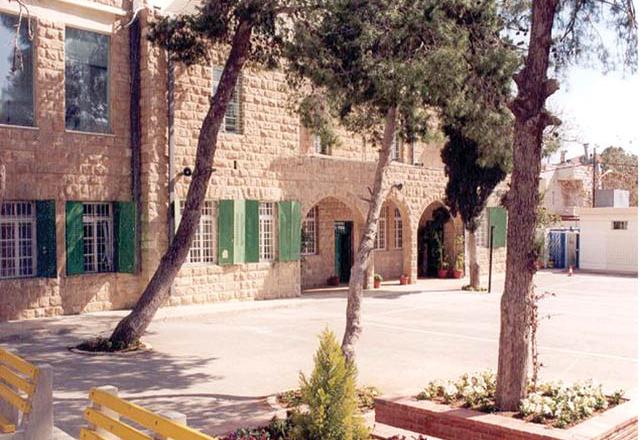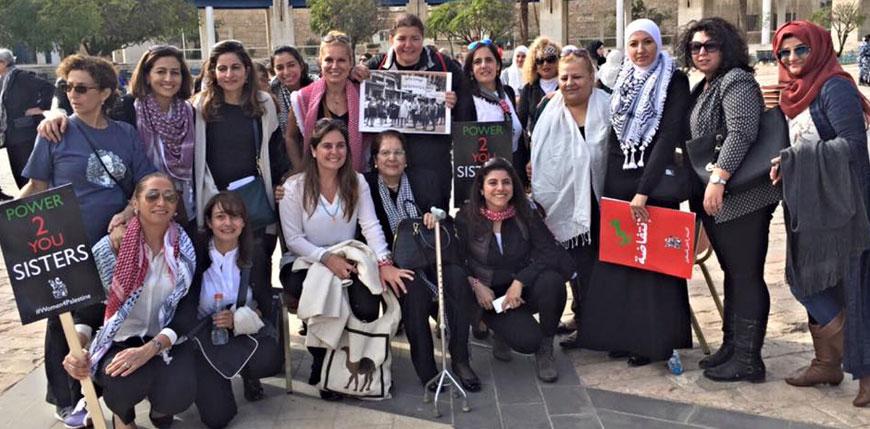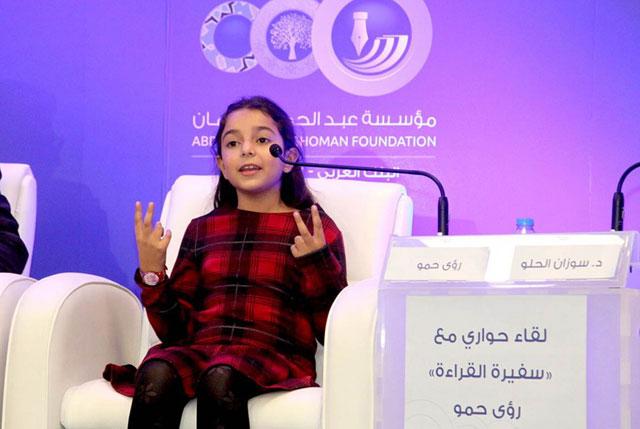You are here
After nine decades, a girl’s school remains faithful to its mission of being a generator for ‘agents of change’
By Suzanna Goussous - Apr 12,2014 - Last updated at Apr 12,2014

AMMAN — When the fledgling Transjordan Emirate was struggling with the first steps in its transformation into a modern state, the Ahliyyah School for Girls (ASG) was also doing its part: empowering Jordanian girls through education and knowledge.
Almost 90 years on, the two entities can boast successful results.
When the Christian Missionary Society in England established the ASG in 1926 — then known as Christian Missionary School (CMS) — in Amman, the school had 25 students.
Since then, thousands of young women have graduated from the school and gone on to contribute to the modern state of Jordan and beyond.
“The school’s main aim is to help students grow into empowered human beings capable of creating a future of their own choice,” ASG Superintendent Haifa Najjar said.
The landmark historical events witnessed in the Kingdom have also had an impact on the school, which stood up to the challenges posed by the Arab-Israeli conflict by offering refugee women the opportunity to become effective members of the rapidly growing Jordanian community.
In 1956, when His Majesty the late King Hussein took the historic decision to Arabise the army, the development reflected immediately on the ASG: The school’s administration was handed over to the Jerusalem-based Arab Episcopal Church in 1957 when the eastern part of the holy city was under Jordan’s jurisdiction.
Over the nine decades since its inception, ASG has produced an array of leaders who have left their mark on the country, and in particular, the women’s sector, with HRH Princess Basma topping this list.
Reem Badran, from the class of 1981, highlighted the spirit of “entrepreneurship” the school instills in its students, within the context of a “healthy atmosphere of competition, academically and socially”.
The remarks by Badran, a prominent businesswoman and politician, and one of the very few women who made it to the Lower House outside the women’s quota system, were echoed by other ASG graduates and students interviewed by The Jordan Times.
“What distinguishes ASG students from others is definitely their confidence, independence, openness, creativity and being challenged not to settle for anything less than what they have targeted in their minds,” Badran said.
“In ASG, we are put in an environment that supports and drives us towards implementing unconventional ideas, especially in a male-dominated society… We discuss sensitive topics with comfort,” noted Dina Saleh, a current student.
As an international school, the mission is “…built on strong sets of values, open to diversity and cultural heritage…” Najjar said.
This emphasis on diversity is credited for producing women leaders in various sectors, including Emily Naffa, an iconic communist leader for decades.
“At the ASG, I learned the difference between real and fake respect; I realised that I don’t need a man who would salute and stand in respect for me, then about seven minutes later, he would tell me I cannot work with them anymore for my political views,” Naffa said, referring to the first employer who fired her because of her political beliefs.
“When I graduated from the school, with the education and knowledge I had, I did not feel that anyone could ever stop me from what I wanted to do… I never stopped giving to this country, just like the ASG brought me up,” the 1952 graduate said.
When the 1948 Arab-Israeli war erupted, boys from the nearby Bishop School and ASG students wanted to protest against the Israeli occupation of Palestine, according to Naffa, who said she improvised a speech and delivered it from the rooftop of the school.
A “supportive teacher” predicted that a “fruitful political career” was awaiting the zealous student.
Tamara Labejian, a 1977 graduate and a teacher at ASG for 27 years, is happy with the results.
“The best thing about ASG graduates until today, is that they are known for their confidence and strong personalities.”
“They are independent thinkers and do not accept stereotypes and mainstream ideas. It is all because of the supportive atmosphere provided by staff from all over the world at the ASG,” Labejian noted.
“The ASG was and still is the stepping stone that empowered women. It educates women and raises them into… powerful, and open-minded young ladies. Over the years, this school welcomed teachers from many neighbouring countries, which widened the students’ visions and views to many regional issues,” Naffa told The Jordan Times.
The school, Najjar said, goes way beyond its buildings.
“We are at the heart of Jordan and the world. Our biggest ongoing achievement is empowering young women to be agents of change… and making them capable of creating a future of their own choice through being lifelong learners, reflective and critical thinkers, emotionally intelligent, ethical beings open to diversity, initiators of change and finally, knowledge creators.”
With several role models and the right environment, Saleh and her school mates are standing in good stead as the future of Jordan.
Related Articles
AMMAN — Ahliyyah School for Girls (ASG) and Bishop's School Amman (BSA) on Saturday launched the 2020 “Yalla Shabab” conference with the tit
AMMAN — From her school’s rooftop in 1948, Emily Naffa delivered a speech condemning the Israeli occupation of Palestinian territories.
AMMAN — Instilling the love of critical reading among children at a young age is key to empowering them to fight extremism, education expert


















